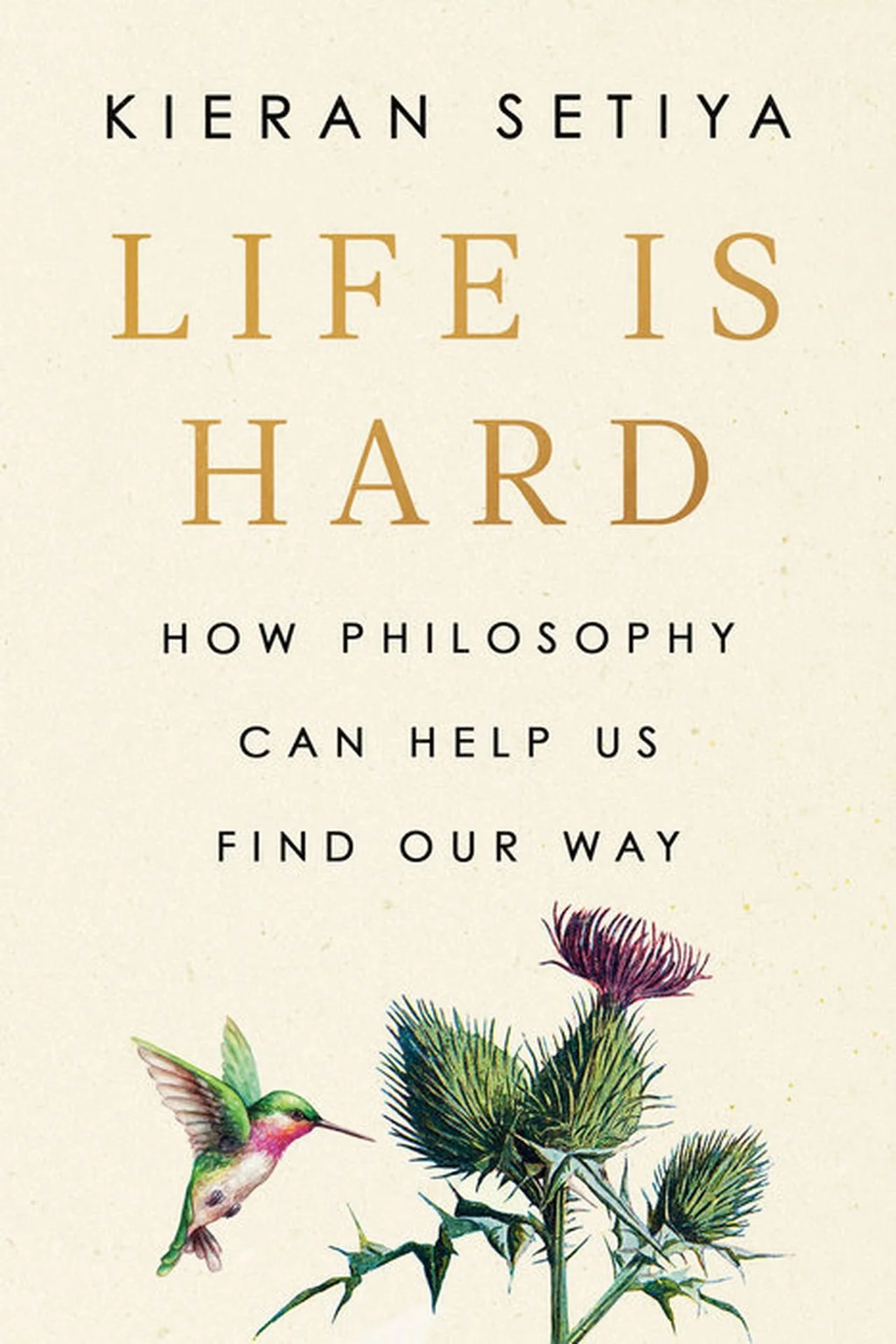Life is Hard by Kieran Setiya
/Life is Hard: How Philosophy Can Help Us Find Our Way
By Kieran Setiya
Riverhead Books 2022
“What would a philosophy look like,” asks MIT philosophy professor Kieran Setiya in his slim new book Life is Hard: How Philosophy Can Help Us Find Our Way, “that was tested in the crucible of direct moral experience?” But like jesting Pilate, he will not stay for an answer – or cannot, since resolving that particular image would cause the entire academic discipline of philosophy to evaporate, which would leave Setiya and his colleagues in search of day jobs.
Any sane reader looking at that deadly subtitle, “How Philosophy Can Help Us Find Our Way,” might justly expect either the sophomoric (and soporific) casuistry for which philosophy is famous, or else something darker, for which philosophy is infamous. A fair number of contemporary philosophers claim, as Setiya does at a couple of points in this book, that they themselves just so happen not to believe in any gods or goddesses watching over the inner and outer lives of every single person on Earth. And every single one of those contemporary philosophers also breaks land-speed records to truck explicitly religious concepts into their books. Setiya’s own book isn’t five pages old before he’s explaining that theodicy is “an argument that vindicates the ways of God to man.”
He contends that a concept like theodicy can be extended well beyond religious faith, that it has “a life of its own, outside of narrowly theistic or doctrinal contexts.” But no matter how many philosophy fans make this absurd claim, it isn’t true. Invoking theodicy in any context automatically raises questions like “Why are we here?” and “What is the meaning of life?” And the minute such nonsense-questions are raised, we are trafficking in that darker something of philosophy: prescriptive religion. Give a Stoic even so much as an alderman’s power and you get a Grand Inquisitor.
Setiya has a smaller, entirely more artisanal philosophy in mind, something that drops most of the larger baggage of ideal-this and perfect-that in favor of the aforementioned crucible of direct moral experience. His concept would “blur the lines between the argumentative and the personal essay, between the discipline of philosophy and the lived experience of someone who finds philosophy ready-to-hand, a tool with which to work through life’s adversities.” People should not aspire to some ideal of happiness, he maintains, because life is hard, and the task should be to face adversity in the truest possible way. “We have to live in the world as it is,” he writes, “not the world as we wish it would be.”
If sentiments like that present you with a whiff of claptrap, it’s not without warrant. When an author declares, as if anybody had any alternative, that we must live in the world as it is, suspicion is justified that something odd is going on. It’s not the only such fortune-cookie pronouncement Setiya offers. “Like other emotions, grief is a response to reasons: facts that seem to justify the feeling,” he writes. “Anger balks at insult or injury; fear registers potential threats; and grief represents loss.” At another point he writes “But the proper response to paralysis is not inaction; it is to take the first step. Do one thing.” At yet another: “Nothing can right the wrongs of the past, which are with us forever, and the fight for a better world may be unending. But there is hope.”
Setiya takes readers through brief chapters on broader headings like “Infirmity,” “Failure,” “Grief,” and “Hope,” and although his discussions touch on the writings of philosophers and theologians, he brings in plenty of other writings as well (Melville’s “Bartleby the Scrivener” gets some entertaining consideration, among other works). But he repeatedly reverts to the kind of gaseous ponderings without which neither philosophy nor modern religion can survive. “The problem, for me,” he writes, “is how to sustain the meaning of life when a religious worldview is not a given. If God is dead, is human life absurd?”
Smart and empathetic as Setiya is, it’s difficult for a book to survive a line like “If God is dead, is human life absurd” with its dignity intact. Like most of the rest of philosophy, it makes virtually no sense except in the context of religious faith, and yet Life is Hard insists it is not offering religious precepts for finding our way. Just insights from a deep thinker on some of the major challenges to happiness, some of the major ways life is hard. And although far too many of them are a bit on the obvious side, the insights are appreciated – but if we’re going to classify pep talks like “do one thing” as philosophy, what else gets that distinction? Accentuate the positive? Don’t let the bastards get you down? Hang in there?
Steve Donoghue is a founding editor of Open Letters Monthly. His book criticism has appeared in The Washington Post, The American Conservative, The Spectator, The Wall Street Journal, The National, and the Daily Star. He writes regularly for The Boston Globe, the Vineyard Gazette, and the Christian Science Monitor.
